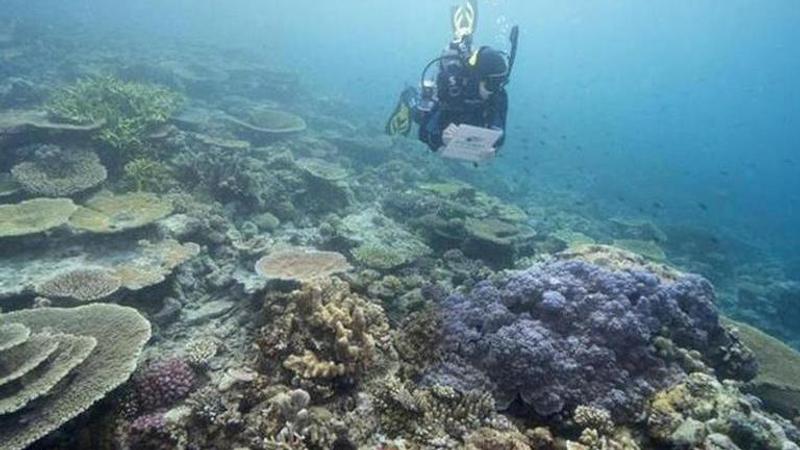Published 06:31 IST, October 6th 2021
UNEP says climate change escalating loss of coral reefs worldwide
“Coral reefs are under threat from climate change, ocean acidification, land-based pollution, sediments from agriculture, marine pollution," UNEP report read.

Advertisement
Continuous rise in sea temperature due to climate change has cost the world 14 per cent of its coral reefs, that’s more than the size of Australia’s reefs combined, experts from the Global Coral Reef Monitoring Network funded by the UN Environment Programme UNEP said on Tuesday, October 5. According to the Sixth Status of Corals of the World: 2020 Report, which was compiled from the data input by more than 300 scientists from 73 countries, over a span of 40 years, including two million individual observations, the world’s coral reef is witnessing a sharp decline.
This deterioration corresponds with rapid increases in sea surface temperatures, stated the UNEP report, indicating their “vulnerability to temperature spikes”. The report also found that this phenomenon is likely to increase as the planet continues to warm. According to scientists, underwater coral reefs support up to 800 different species of hard coral and are home to more than 25 per cent of all marine life. The hard corals, furthermore, provide additional homes for fish, snails and other marine creatures.
New #WorldCoralReefStatus report:
— UN Environment Programme (@UNEP) October 5, 2021
Between 2009 and 2018, the world lost about 14% of the coral on its coral reefs, which equates to around 11,700 square kilometres of coral, more than all the living coral in Australia.
Learn more⤵️#ForNature https://t.co/PlsAC8G8Jy
“Coral reefs are under threat from climate change, ocean acidification, and land-based pollution; as well as sediments from agriculture, marine pollution and overfishing,” the report published by UNEP said on October 5.
“Maintaining the integrity and resilience of coral reef ecosystems is essential for the wellbeing of tropical coastal communities worldwide, and a critical part of the solution for achieving the Sustainable Development Goals (SDGs) under the 2030 Agenda for Sustainable Development”, underscored the Status of Coral Reefs,” it added.
Coral reefs harbour the 'largest biodiversity' of world's ecosystem
“Reefs harbour the highest biodiversity of any of the world’s ecosystems, making them one of the most biologically complex and valuable on the planet,” stated the Sixth Status of Corals of the World report. But due to global warming and climate change, when the sea waters get too warm, corals released their colourful micro-algae, turning a skeletal white colour in a phenomenon known as coral bleaching. During the bleaching, the naturally producing a protective layer of neon pigments are produced that destroy the coral reefs.
“Bleaching can be thought of as the ocean’s version of the ‘canary in the coral mine’ since it demonstrates corals’ sensitivity to dangerous and deadly conditions”, the Status of Coral Reefs explained.
Another phenomenon that flared due to the climate change noticed by the scientists was the shift from coral to algae-dominated reefs which makes the marine regions less biodiverse. According to the report, there has been a steady decrease in hard coral cover since 2010 with the worst impacts occurring in South Asia, Australia, the Pacific, East Asia, the Western Indian Ocean, The Gulf and the Gulf of Oman. Scientists had also earlier warned of seaweed that was spreading rapidly in remote northwestern Hawaiian islands, killing large patches of pristine coral. This newly discovered ‘highly destructive’ species of seaweed easily breaks off and tumbles around, eventually settling on corals to block their space and sunlight.
Even as the coral reefs cover only 0.2 per cent of the seafloor in more than 100 countries they underpin the safety, coastal protection, wellbeing, food and economic security of hundreds of millions of people, the report warned. It is said that the coral reefs generate an estimated $2.7 trillion per year of goods for humans, including $36 billion in coral reef tourism.
Updated 06:31 IST, October 6th 2021




